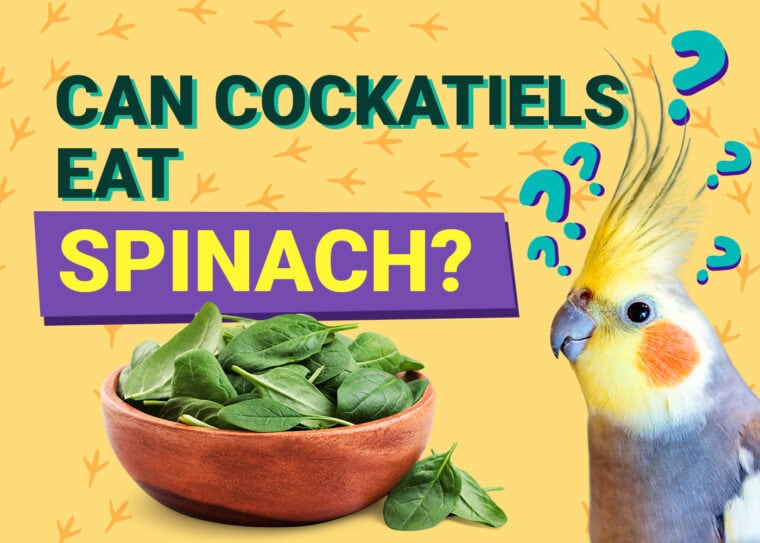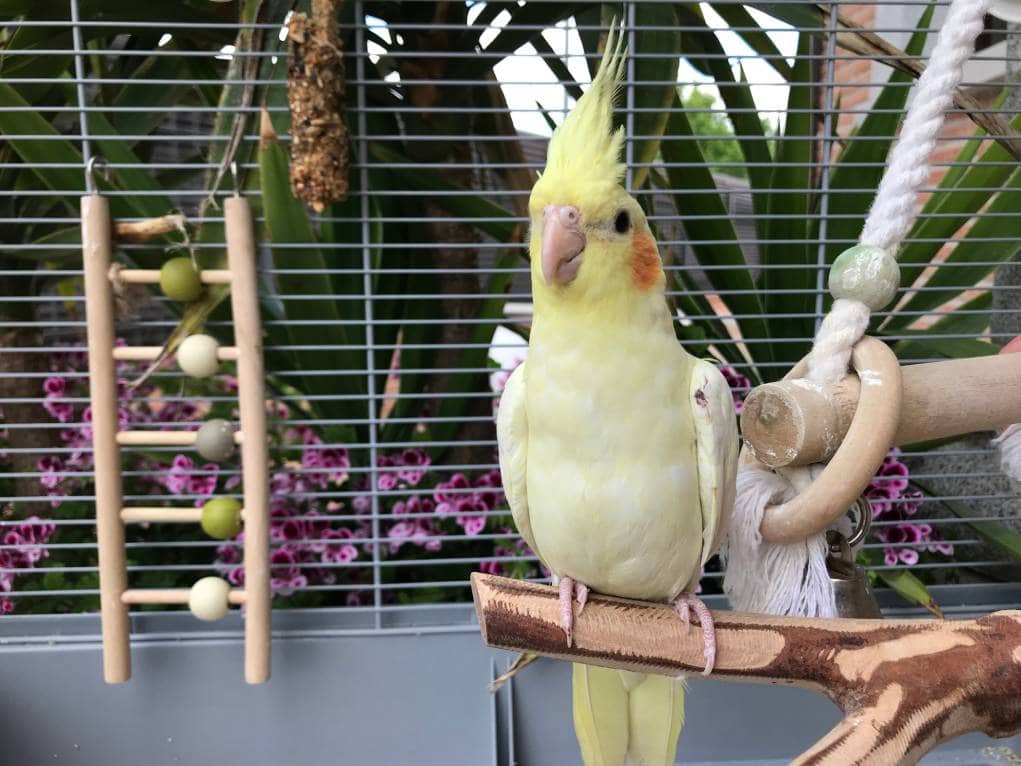
Cockatiels, like all parrots, are intelligent and social birds that love spending time with their owners. One way that many people enjoy offering enrichment to their cockatiels is by offering a variety of foods. This doesn’t just help keep your cockatiel healthy but is also necessary for their overall health and well-being.
Spinach is a common food in many households, and if you’re interested in adding new foods to your cockatiel’s rotation of fresh foods, you may have wondered if you can feed spinach to your cockatiel. The short answer is yes, cockatiels can eat spinach. Here’s what you need to know.
Can Cockatiels Eat Spinach?
Cockatiels can eat spinach! Spinach is best served uncooked, adequately washed, and preferably spin-dried. Salad spinners are excellent for drying spinach leaves. Washing is essential as spinach may have pesticides, parasites, and other contaminants present on the leaves and stems which can be dangerous to the health of your cockatiel.

Is Spinach Good for Cockatiels?
Spinach can be a wonderful addition to your cockatiel’s diet. While the majority of a spinach leaf’s content is water, it also provides nutritional benefits thanks to its Vitamin C, Vitamin B, Magnesium, Potassium, and Iron content. Parrots need all these nutrients for growth, repair, maintenance, and general well-being.
Feeding your cockatiels the wrong mixture of seeds can be dangerous to their health, so we recommend checking with an expert resource like The Ultimate Guide to Cockatiels, available on Amazon.
This excellent book will help you balance your cockatiels’ food sources by understanding the value of different seed types, dietary supplements, fruits and vegetables, and cuttlebone. You’ll also find tips on everything from housing to health care!
Does Spinach Have Any Health Risks?
Spinach naturally contains oxalic acid.1 This acid binds with calcium ions in a bird’s digestive tract and prevents their absorption. However, as we’ll explain later, if your cockatiels are provided with a great, varied, species-appropriate diet, this shouldn’t be a reason for alarm.
While vegetables and fruits are fantastic for cockatiels, offering them nothing but these may lead to digestive upset and diarrhea, along with other nutritional issues and deficiencies. It is therefore important that your cockatiels have access to a varied diet.

How Much Spinach Can My Cockatiel Have?
Unlike cats, dogs, and many other pets, parrots and other pet birds have the fantastic ability to easily regulate and adjust their food intake depending on their biological needs. They instinctively know how much of a nutrient they need depending on their body’s requirements at any point and can adjust their intake accordingly.
Therefore, the amount of spinach you offer your birds should be enough that your birds can eat all they like throughout the day, but not enough to cause too much spoilage by day’s end. If you have a single cockatiel in a cage by itself, a few small leaves will suffice. If you have a flock of perhaps 10 or more birds, you could consider leaving more spinach in their cage every morning. Remember to always discard all uneaten fresh food at the end of each day.
Getting Your Cockatiel To Try Spinach
When you add spinach into your cockatiel’s food options, your bird may try it right away. Many cockatiels, especially those that are tame and attached to you, have enough trust and are inquisitive enough to try new things readily.
Some bird owners may find that their cockatiels are hesitant to try spinach (or other foods) when they’re first offered. Your parrot might be confused as to what the food item is and refuse to eat it. Introducing new food items to your parrot may be tricky but is often worth it. Here, we’ll explain how you can do so with your cockatiel.
Conclusion
Like with most parrots, a highly varied, species-appropriate diet is the best option for cockatiels to ensure health and well-being. Uncooked, freshly washed spinach is safe for cockatiels and can be added to their diet; it provides them with several nutrients and isn’t toxic. Though the presence of oxalic acid in the spinach may be alarming, it shouldn’t be cause for great concern as long as your parrot has abundant variety in their diet. It is a great idea to discuss your parrot’s diet with your vet to ensure that your cockatiel is getting all the nutrition it needs.
If your cockatiel seems shy to try spinach, there are certain tricks you can use to get them to try it out. However, it is important to remember that some cockatiels might never accept it, and that’s okay, too! As long as you provide them with plenty of other safe options to choose from, you should not be worried about their rejection of spinach.
See Also:
Featured Image Credit: Piqsels










